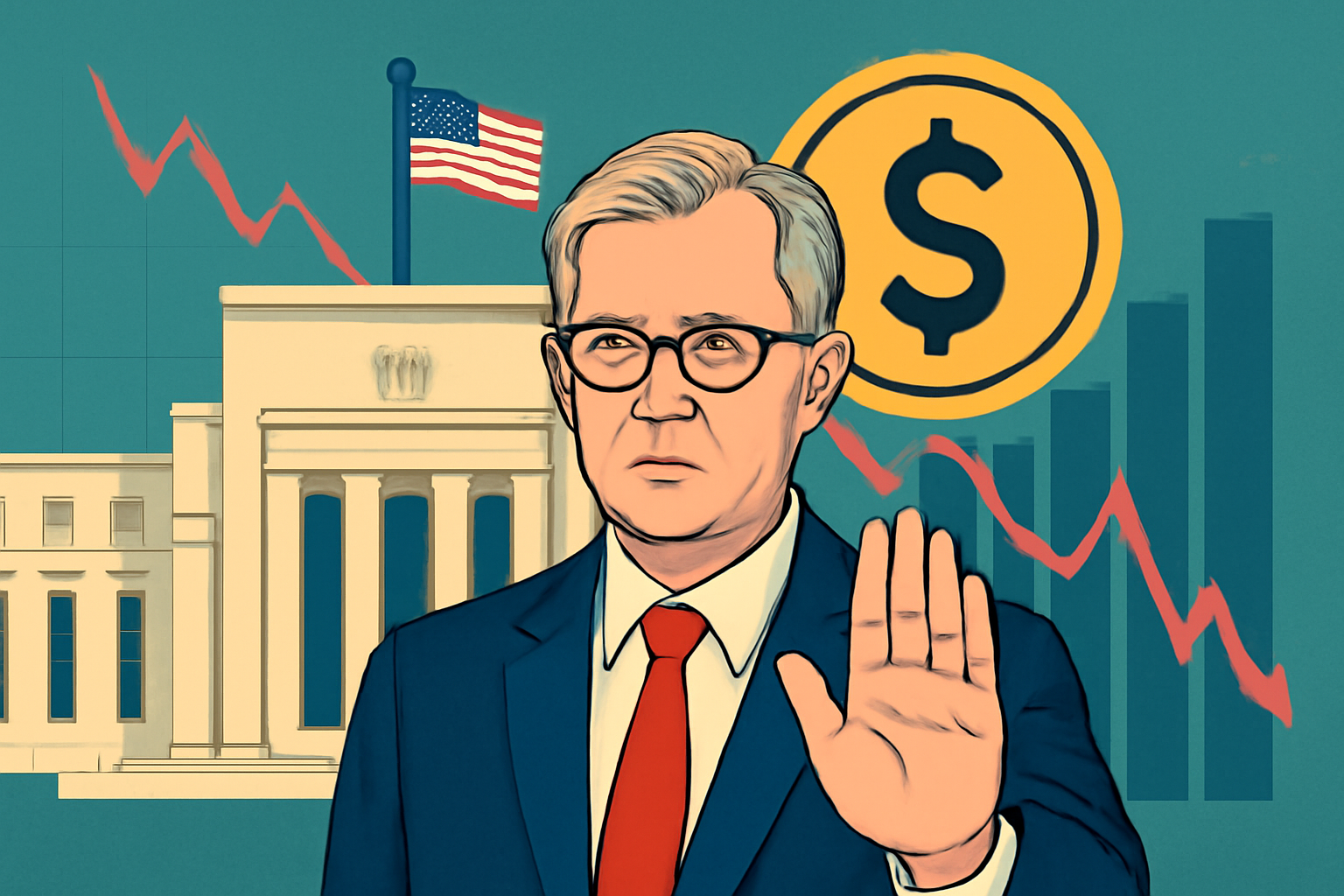With U.S. markets hanging on every Federal Reserve signal, Fed Governor Christopher Waller has delivered a message investors can’t ignore: monetary policy will not be swayed by political agendas. Speaking this week in Washington, Waller emphasized that the Fed’s decision-making will remain data-driven, not dictated by electoral timing or political pressure — a stance that immediately reverberated through bond yields and rate-sensitive equities.
According to Bloomberg, the remarks come at a delicate moment, with inflation cooling but still above the Fed’s 2% target and financial markets pricing in multiple rate cuts for early 2026. Waller, viewed by many as a potential successor to Chair Jerome Powell, pushed back against the notion of premature easing — signaling that policymakers remain wary of declaring victory over inflation too soon.
The Fed’s Independence Under the Microscope
As the U.S. approaches another election cycle, political commentary around interest rates has intensified. Both parties have called on the central bank to “consider Main Street impacts” — code for easing credit conditions sooner. But Waller’s comments reaffirmed a core principle: Fed independence remains non-negotiable.
“Central banks lose credibility when they bend to politics,” Waller said, echoing past episodes in U.S. history when policy interference fueled inflationary spirals. Analysts at Bloomberg Economics noted that his tone was “decisively hawkish,” suggesting the Fed may prefer to err on the side of caution even if it risks short-term market volatility.
The 10-year Treasury yield ticked higher following the speech, while rate-sensitive sectors like technology and real estate saw mild pullbacks. Meanwhile, bank and insurance stocks — which typically benefit from higher yields — outperformed in late trading.
Why This Matters for Investors
Waller’s remarks land at a pivotal time. Markets have been pricing in up to three rate cuts over the next twelve months, banking on a soft landing for the economy. But if the Fed opts to stay higher-for-longer, investors may need to reassess assumptions baked into equity valuations, particularly in the growth and tech sectors that thrive on cheaper capital.
This renewed emphasis on policy restraint introduces a dual dynamic:
- Growth sectors may cool: High-multiple stocks could see pressure as yields stay elevated longer than anticipated.
- Yield-sensitive assets may rise: Financials, utilities, and dividend-paying value stocks could gain favor among investors seeking stability and predictable income streams.
“Markets are realizing that political noise doesn’t drive the Fed’s calculus,” said a senior strategist at Morgan Stanley in an interview cited by Bloomberg. “The new message is: expect patience, not panic.”
The Bigger Picture: Politics Meets Policy
The episode highlights how monetary policy remains a political lightning rod heading into 2026. With inflation moderating yet not fully subdued, and unemployment still historically low, policymakers are trying to thread a needle — supporting growth without stoking another inflationary cycle.
Waller’s comments may also carry personal significance. As one of the leading contenders to succeed Chair Powell when his term ends, his stance could serve as a preview of the Fed’s post-Powell direction. Investors now see Waller as emblematic of continuity — pragmatic, measured, and firmly independent.
“Waller represents the institutional DNA of the modern Fed,” said an analyst at Oxford Economics. “He’s signaling that policy will remain steady even if political rhetoric intensifies.”
Key Investment Insight
Investors should expect monetary policy to stay tight for longer than markets currently price in — at least until data confirm sustained disinflation. In this environment:
- Consider rotating toward defensive sectors like financials, healthcare, and utilities that perform well in stable-to-high-rate environments.
- Maintain selective exposure to growth stocks with strong balance sheets and positive cash flows, as these are better positioned to weather rate uncertainty.
- Keep an eye on Fed communications and Treasury yields — shifts in tone or market reaction could hint at changing sentiment before official moves occur.
Waller’s statement reinforces that policy patience, not political expediency, remains the guiding principle. For investors, that means preparing for a longer plateau — not an immediate descent — in interest rates.
As the Fed’s future direction comes into sharper focus, understanding how policy independence interacts with market expectations is key to staying ahead. Stay tuned with MoneyNews.Today for daily insights into how central bank dynamics, political pressures, and global trends shape tomorrow’s investment landscape.





